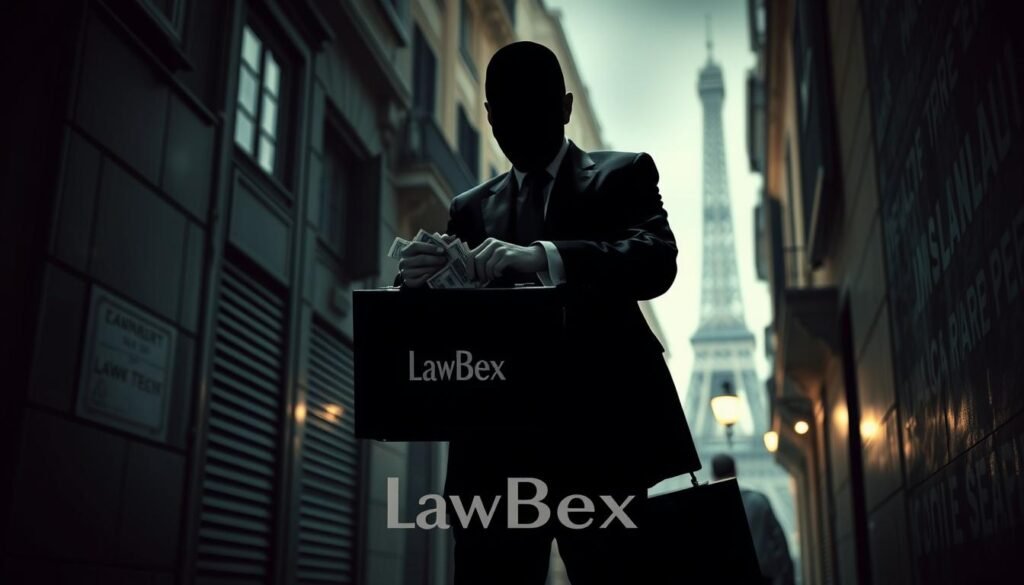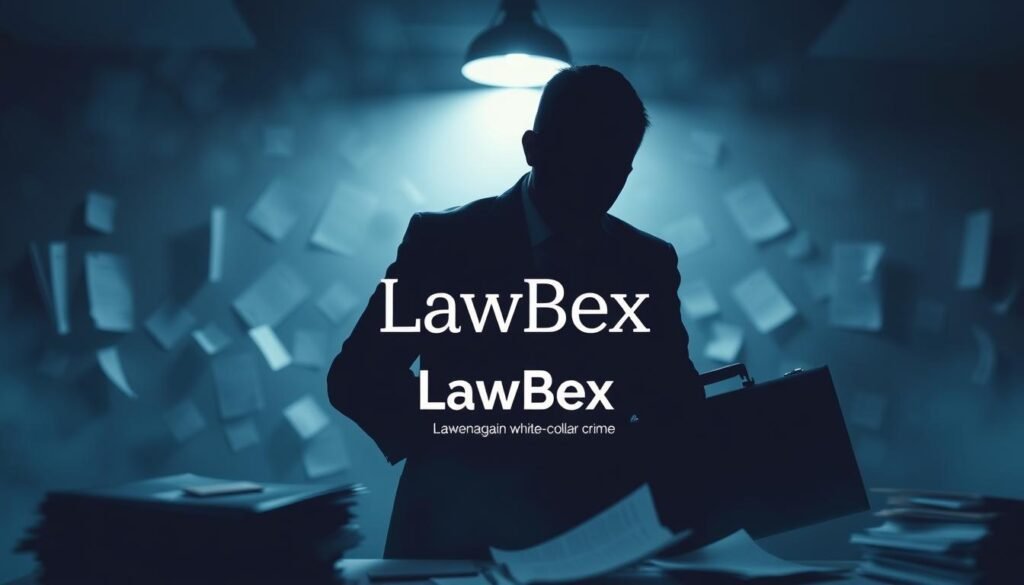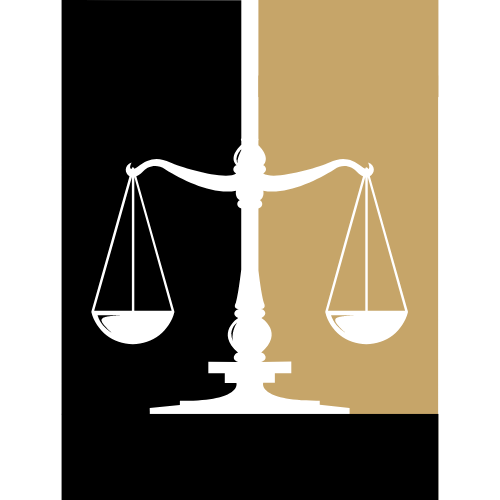France is facing a big challenge with white-collar crimes. This year, 2022, is key to understanding the changes and trends. It’s important for businesses and the economy. Let’s dive into what’s happening and how it will affect us.
Key Takeaways
- Comprehensive overview of the latest developments in white-collar crime in France during 2022
- Examination of key cases, regulatory changes, and the future outlook of this significant area of concern
- Exploration of the impact of white-collar crimes on businesses and the French economy
- Insights into the evolving landscape of financial fraud, corruption, embezzlement, and other white-collar offenses
- Emphasis on the role of whistleblowers, advocacy groups, and international cooperation in addressing these challenges
Defining White-collar Crime in France
In France, white-collar crime laws are complex. These crimes include using power, trickery, or deceit for personal or company benefits. The French system recognizes financial fraud, corruption, embezzlement, insider trading, money laundering, and corporate misconduct as white-collar crimes.
Legal Framework and Categories
The French Penal Code outlines the laws for white-collar crimes. These crimes fall into several main categories:
- Financial Fraud: This includes securities fraud, accounting fraud, and investment scams.
- Corruption and Bribery: It involves using power for personal gain, often through favors or secret payments.
- Embezzlement and Insider Trading: It’s about taking money or using secret info for personal profit.
- Money Laundering and Tax Evasion: It’s about hiding where money came from and avoiding taxes.
- Corporate Misconduct: This includes unethical or illegal actions in companies, like breaking antitrust laws or ignoring environmental rules.
High-Profile Cases and Public Perception
Recent big cases have changed how the French see white-collar crime. The Bygmalion scandal and the Airbus bribery case are examples. They made people more aware and demanding of stronger laws and penalties.
“The impact of white-collar crime is often underestimated, but it can have far-reaching consequences for the economy, public trust, and the fabric of society as a whole.”
White-collar crime in France
White-collar crime is a big problem in France, affecting the economy and society. It includes financial fraud, corruption, and more. These crimes hurt trust and slow down economic growth.
Recent reports show white-collar crime is still a big worry in France. Many cases involve people in power doing wrong things. This shows we need better rules and stronger actions to stop these crimes.
- Financial fraud, like lying about money, is common.
- Corruption and bribery, especially in government and big projects, are big issues.
- Insider trading and embezzlement schemes also cause big problems.
White-collar crime costs France billions of euros each year. It hurts the economy and takes away money for important things. This makes it hard for France to grow and improve.
“White-collar crime erodes the foundations of a just and equitable society, undermining the trust that is essential for a thriving economy and a cohesive social fabric.” – French anti-corruption advocate
To fight white-collar crime, France needs a plan. This includes better laws, stronger rules, and teaching businesses to act ethically. With action, France can reduce these crimes and create a fairer economy.

Financial Fraud Landscape in 2022
In 2022, France saw a lot of financial fraud cases. These crimes hurt people’s trust in the financial world. They show we need strong rules and strict law enforcement.
Prominent Cases and Investigations
One big case was about a French investment firm. It was accused of taking money that didn’t belong to it. This caused big losses for those who invested. The police are working hard to figure out who did it and why.
Another big case was against a famous French businessman. He was accused of not paying taxes and hiding money. This case shows how important it is to share information across borders to fight financial crimes.
| Case | Allegations | Status |
|---|---|---|
| Investment Firm Fraud | Misappropriation of funds, manipulation of financial records | Ongoing investigation |
| Tax Evasion and Money Laundering | Use of offshore accounts, complex financial structures | Ongoing investigation |
These cases show how financial fraud is changing in France. We need to stay alert and have strong rules. We also need to work better together to fight these crimes.
Corruption and Bribery: A Persistent Challenge
Corruption and bribery are big problems in France. They make it hard for the country to fight white-collar crime. These issues are deep-rooted and threaten the trust in businesses and institutions.
Corruption and bribery in France are complex. High-profile cases often hit the news. These cases hurt public trust and affect the economy and society.
To understand the situation better, let’s look at some key points:
- Scandals involving politicians, business leaders, and officials keep happening. This shows how widespread these problems are.
- The French government has brought in new laws and actions to fight bribery and corruption. But, people question how well these work.
- Many French people are worried about corruption and bribery. Surveys show they feel the government isn’t doing enough to solve these issues.
France needs a strong plan to tackle these issues. It must involve both the public and private sectors. Working together, they can make progress. It’s important to keep pushing for transparency, stronger laws, and protecting whistleblowers.

| Indicator | 2020 | 2021 | 2022 |
|---|---|---|---|
| Corruption Perception Index (France) | 69 | 71 | 73 |
| Bribery Incidence (France) | 8% | 7% | 6% |
The fight against corruption and bribery in France must keep going. It’s important for everyone to stay focused and work together. Only then can France create a fair and trustworthy business environment that supports growth.
Embezzlement and Insider Trading Schemes
In France, embezzlement and insider trading are big worries for regulators and law enforcement. These crimes can harm the trust in financial markets and the business world.
Regulatory Efforts and Enforcement
To tackle these issues, French authorities have set up many rules and actions. The Autorité des Marchés Financiers (AMF) leads these efforts. They work hard to find, check, and punish embezzlement and insider trading.
The AMF has improved its watch over markets. They use new tools like data analytics and AI to spot odd trading. They also work with other countries to share info and fight these crimes better.
But, catching these crimes is still hard. The people who commit these crimes use smart tricks. It’s tough for authorities to find and charge them. This shows we need to keep watching closely and use many ways to fight these crimes.
| Enforcement Statistic | 2020 | 2021 | 2022 |
|---|---|---|---|
| Embezzlement Cases Investigated | 78 | 81 | 89 |
| Insider Trading Cases Investigated | 52 | 68 | 75 |
| Successful Prosecutions | 42 | 51 | 58 |
As the financial world changes, France’s regulators and law enforcement must stay alert and flexible. They face a big challenge. The success of their efforts is crucial for the health of France’s financial markets.
Money Laundering and Tax Evasion Concerns
In France, money laundering and tax evasion are big worries. They hurt the financial system and cost the government a lot of money. To fight these crimes, France works hard with other countries and uses special plans.
International Cooperation and Initiatives
France knows money laundering and tax evasion are global problems. So, it teams up with other countries. This helps share information, plan actions together, and fight these crimes better.
- The Financial Action Task Force (FATF) helps set rules for fighting money laundering and terrorist funding. France helps follow these rules.
- The Organization for Economic Co-operation and Development (OECD) works on stopping big companies from avoiding taxes. France supports this effort to make taxes fairer.
- France also makes deals with other countries to share financial info, freeze money, and bring back stolen funds. Working together is key to stopping these crimes.
France also has its own plans to fight these crimes. It makes banks check customers better, has special teams to investigate, and finds ways to get back stolen money.
| Initiatives | Key Focus Areas |
|---|---|
| Anti-Money Laundering Measures | Strengthening Know-Your-Customer (KYC) procedures, monitoring suspicious transactions, and enhancing information sharing among financial institutions and law enforcement agencies. |
| Tax Evasion Prevention Strategies | Improving tax transparency, implementing stricter reporting requirements for individuals and businesses, and collaborating with international partners to combat cross-border tax avoidance schemes. |
| Asset Tracing and Recovery Programs | Establishing dedicated task forces to identify, freeze, and repatriate assets obtained through money laundering and tax evasion activities. |
France’s efforts, along with public awareness and protecting whistleblowers, have helped a lot. But, these crimes keep changing, so France must stay ready to protect its financial system and economy.

Corporate Misconduct and Securities Violations
In recent years, France has seen a rise in corporate misconduct and securities violations. This has affected businesses, investors, and the economy. Regulatory bodies, media, and the public are all paying close attention.
Financial fraud is a big problem in France. It includes things like lying about financial statements, insider trading, and market manipulation. Cases like the Société Générale trading scandal and the Wirecard accounting scandal have shown the damage it can cause.
Corruption and bribery are also big issues. Some French companies have been accused of using questionable practices to get contracts or gain an unfair advantage. This harms their reputation and the economy.
Embezzlement and insider trading schemes are also a worry. Some people use their jobs for personal gain. Efforts to make things more transparent and enforce rules are ongoing.
| Type of Misconduct | Notable Cases | Estimated Financial Impact |
|---|---|---|
| Financial Fraud | Société Générale trading scandal, Wirecard accounting scandal | Billions of euros in losses |
| Corruption and Bribery | Allegations against French companies in various sectors | Difficult to quantify, but significant reputational and financial consequences |
| Embezzlement and Insider Trading | Numerous cases involving individuals within organizations | Varied, depending on the scope and duration of the schemes |
The French government and regulatory bodies are working hard to solve these problems. Businesses need to focus on good governance, ethics, and compliance. This helps prevent misconduct and violations, making the business environment more trustworthy.
Cybercrime and White-collar Offenses
In recent years, cybercrime has become a big challenge in France. Cybercriminals use new methods to commit financial fraud and data breaches. It’s important to know about these threats and how to prevent them.
Emerging Threats and Preventive Measures
Ransomware attacks are a big threat to French businesses. These attacks encrypt data and systems, demanding a ransom. Phishing scams also target companies, tricking employees into giving out sensitive info.
Cryptocurrency has made money laundering easier. To fight these threats, France has taken steps. These include better cybersecurity, educating employees, and working with other countries.
Many French companies are also protecting themselves. They have strong plans for when cyber attacks happen. By being proactive, they can fight off cybercrime and its impact on white-collar crimes.

Legal and Regulatory Developments in 2022
In 2022, France saw big changes in legal developments and regulatory changes. These changes aimed to make things more transparent, enforce rules better, and fight new threats in finance and business.
The “Sapin II” law was a key change. It made anti-corruption efforts stronger and added new rules for companies. With more action from regulators, companies now focus more on ethics and good governance.
The French Anti-Corruption Agency (AFA) was also set up. It’s key in fighting white-collar crimes. The AFA can now give out tougher penalties and check if companies follow the rules.
- New laws were made to tackle tax evasion. They help share info with other countries and track money better.
- For cybercrime, rules got tighter. They improved data protection, made reporting incidents easier, and helped public and private sectors work together. This aims to reduce digital fraud and online wrongdoings.
These legal developments and regulatory changes have changed France’s fight against white-collar crime. Now, there’s more focus on being responsible and open in business.
“The legal and regulatory landscape in France has undergone a significant transformation, as the government works to combat the growing threat of white-collar crime and promote a more ethical business environment.”
Role of Whistleblowers and Advocacy Groups
Whistleblowers and advocacy groups are key in fighting white-collar crimes in France. They uncover big cases of corporate wrongdoings, financial scams, and power abuse. Without them, these issues might stay hidden.
Prominent Cases and Impact
Stéphanie Gibaud, a French whistleblower, exposed UBS’s tax evasion. Her work led to a huge fine of 4.5 billion euros. This showed banks the serious penalties for such crimes.
Groups like Transparency International France push for better laws against corruption. They work hard to hold corporate leaders accountable. Their efforts led to big wins, like the Airbus bribery scandal’s 3.6 billion euro settlement.
- Whistleblowers like Stéphanie Gibaud have exposed major tax evasion schemes, leading to significant fines and investigations.
- Advocacy groups such as Transparency International France have advocated for tougher anti-corruption measures and played a key role in several high-profile prosecutions.
- The impact of these efforts has been significant, with increased accountability and stricter penalties for white-collar crimes in France.
Whistleblowers and advocacy groups are crucial in the fight against white-collar crime in France. Their bravery and dedication have brought light to the dark world of corporate wrongdoings. This has led to real change and a stronger focus on ethical business practices.

White-collar Crime Prosecution and Enforcement
In France, fighting white-collar crime needs a strong system. The legal framework is set up to tackle these crimes. It’s found in different laws and enforced by special teams and courts.
The public prosecutor is key, with the police or gendarmerie leading the investigation. They start inquiries when they get complaints or reports. They can ask questions, search places, tap phones, and get expert opinions.
- Prominent Prosecutions and Investigations: Big cases show the authorities’ commitment to fighting financial crimes. The OCLCIFF and OCRGDF units handle these complex cases.
- Judicial System Effectiveness: While there have been successes in prosecuting white-collar crimes, the system still faces challenges. It’s hard to make sure the justice system works well against these crimes.
- Collaboration and Coordination: For prosecution and enforcement to work, everyone needs to work together. This includes regulatory bodies, law enforcement, and the courts.
“Tackling white-collar crime is a priority, but the judicial process can be arduous and complex. Continuous improvement in coordination and streamlining of procedures is crucial for enhancing the enforcement efforts.”
Fighting white-collar crimes is a big task for French authorities. They need to find a balance between protecting businesses and punishing wrongdoers. This is key to keeping trust and helping the economy grow.
Impacts on Business and Economic Growth
White-collar crimes hurt businesses and France’s economy a lot. They can make people lose trust, mess up the market, and hurt France’s standing worldwide. To fight these issues, France has started new plans to make things more open and fair in business.
Transparency and Corporate Governance Initiatives
The 2016 Sapin II law is a big step against corruption in France. It makes big companies work hard to stop corruption. They must have rules, ways for people to speak up, and check their partners well. These steps make businesses more open and honest, which helps everyone trust them more.
The French Anti-Corruption Agency (AFA) helps companies follow the law. They make sure companies are doing what they should. This makes companies better at controlling risks and being honest, making business better for everyone.
| Impact on Business | Impact on Economic Growth |
|---|---|
| – Erosion of public trust in businesses – Disruption of market dynamics – Reputational damage and loss of competitive edge |
– Reduced investor confidence – Increased economic uncertainty – Potential decline in foreign direct investment |
France wants to make business better by fighting white-collar crimes and being more open. If they keep going, France’s economy will grow stronger. This will help France stay a top player in Europe.
International Cooperation and Cross-Border Cases
In today’s world, white-collar crimes often cross borders, making it hard for law enforcement. We need international cooperation more than ever. Working together helps us investigate, prosecute, and prevent these crimes.
Cases involving France and other countries need a team effort. We must share information, align laws, and work together on investigations. Agencies worldwide are seeing the importance of working together to fight white-collar crime.
Recently, we’ve seen more big cross-border cases of fraud, corruption, and financial crimes. These cases are complex, with money moving across borders and evidence hard to get. But, with international partnerships and new investigative tools, we’re making progress.
| Key Aspects of Cross-Border Cases | Strategies for International Cooperation |
|---|---|
|
|
Looking ahead, we must keep improving international cooperation and handling cross-border cases well. By working together, we can make the global financial system safer and more transparent. This will help us fight against the threats from criminal networks.
“Effective cross-border cooperation is the linchpin of successful white-collar crime investigations in today’s interconnected world.”
Prevention and Mitigation Strategies
France faces ongoing challenges from white-collar crime. A key strategy is to prevent and mitigate these issues. This involves creating a culture of ethics and strengthening compliance programs.
Corporate Ethics and Compliance Programs
In France, top companies see the importance of compliance in fighting white-collar crime. They focus on ethical practices, strong controls, and managing risks. This approach helps create a culture that discourages fraud and supports good governance.
- Implementing robust compliance programs with clear policies and procedures
- Fostering a culture of ethical decision-making and accountability at all levels of the organization
- Conducting regular risk assessments and implementing tailored mitigation strategies
- Providing comprehensive employee training on compliance and anti-corruption measures
- Establishing effective whistleblower systems and encouraging the reporting of suspected misconduct
Through these efforts, French companies are tackling white-collar crime head-on. They are showing their dedication to ethics and responsible business.
“The best way to address white-collar crime is to prevent it from happening in the first place. Robust compliance programs and a strong ethical culture are essential safeguards against financial misconduct.”
By focusing on compliance programs, French companies are making a big difference. They are reducing the risks of white-collar crimes and promoting a more open and responsible business world.
UNDERSTANDING CRIMINAL CHARGES: LEGAL GUIDANCE
Emerging Trends and Future Outlook
The future of white-collar crime in France is filled with new trends and challenges. Financial fraud schemes are getting more complex, using new technologies. This means we need better cybersecurity and teamwork between law enforcement, regulators, and businesses.
Money laundering and tax evasion across borders are also becoming bigger issues. To fight these crimes, we need to work better together internationally. We also expect to see stricter rules and more checks on company leaders.
Whistleblowers and advocacy groups will play a bigger role in uncovering wrongdoings and pushing for change. It’s important to protect them and create a culture of openness. As we face these new challenges, our dedication to fairness and the integrity of France’s financial system must stay strong.
